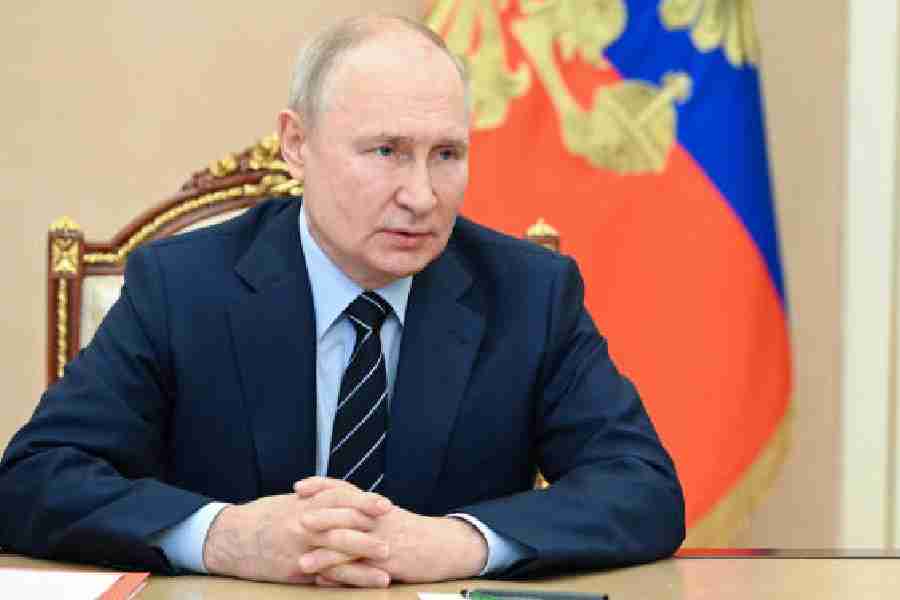The Russian rouble on Monday reached its lowest value since the early weeks of the war in Ukraine as Moscow increases military spending and Western sanctions weigh on its energy exports.
It led Russia’s central bank to announce it will hold an emergency meeting Tuesday to review its key interest rate, opening the possibility of an increase in borrowing costs that would support the flagging rouble.
The Russian currency passed 101 roubles to the dollar, continuing a more than 25 per cent decline in its value since the beginning of the year and hitting the lowest level in almost 17 months. The rouble recovered slightly after the central bank’s announcement.
The meeting was set after President Vladimir Putin’s economic adviser, Maksim Oreshkin, blamed the weak rouble on “loose monetary policy” in an op-ed on Monday for state news agency Tass. He said a strong rouble is in the interest of the Russian economy and that a weak currency “complicates economic restructuring and negatively affects people’s real incomes.”
Oreshkin said Russia’s central bank has “all the tools necessary” to stabilise the situation and added he expected normalisation shortly.
Central bank deputy director Alexei Zabotkin told reporters on Friday that it is adhering to a floating exchange rate because “it allows the economy to effectively adapt to changing external conditions.”
Analysts say the weakening of the rouble is being driven by increased defence spending — leading imports to rise — and falling exports, particularly in the oil and natural gas sector.
Importing more and exporting less means a smaller trade surplus, which typically weighs on a country’s currency.
On Monday, some Russians in Moscow appeared concerned about the weakening currency.
“Prices will rise, which means that the standard of living will fall. It has already fallen, and it will fall even more — there are definitely more poor people,” said Vladimir Bessosedny, 63, a retired teacher.
Others hoped the fall of the rouble was temporary and that it would stabilise.
Fierce fighting
Ukraine on Monday reported fierce fighting along its entire front line and “some success” in pushing back Moscow’s troops in one part of the southeast where Ukrainian forces are trying to retake Russian-occupied territory.
Progress has been hampered by widespread Russian-laid minefields and strong fortifications, deputy defence minister Hanna Maliar said.
But the Ukrainian military had pushed forward around the village of Staromaiorske, around 60 miles southwest of Russian-held Donetsk.
AP and Reuters










